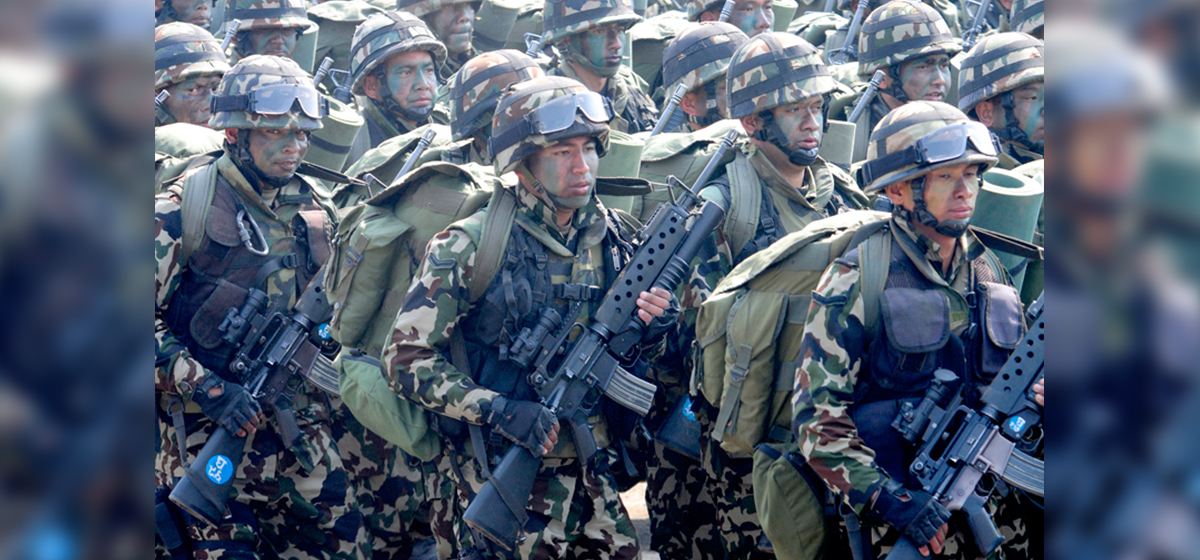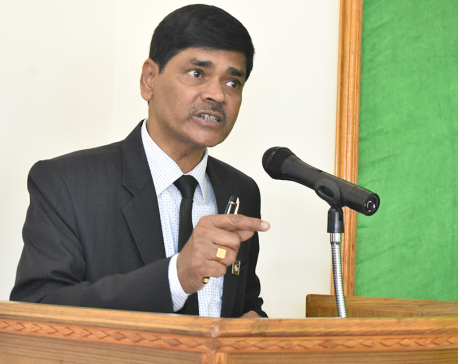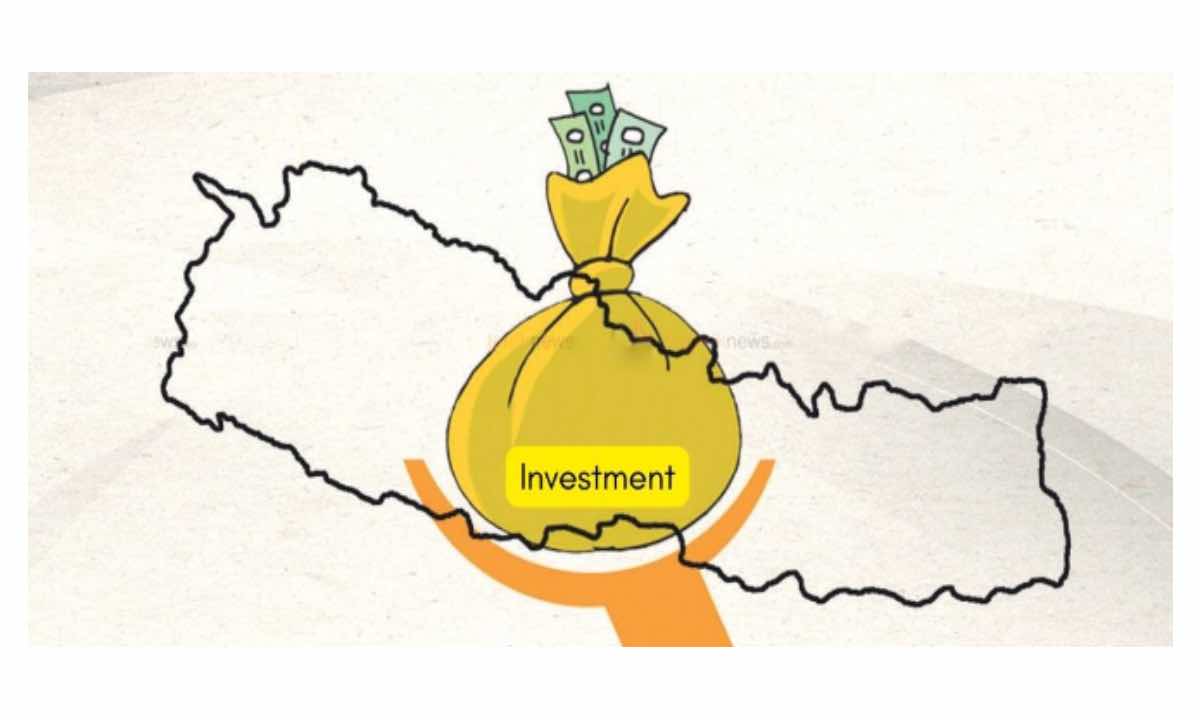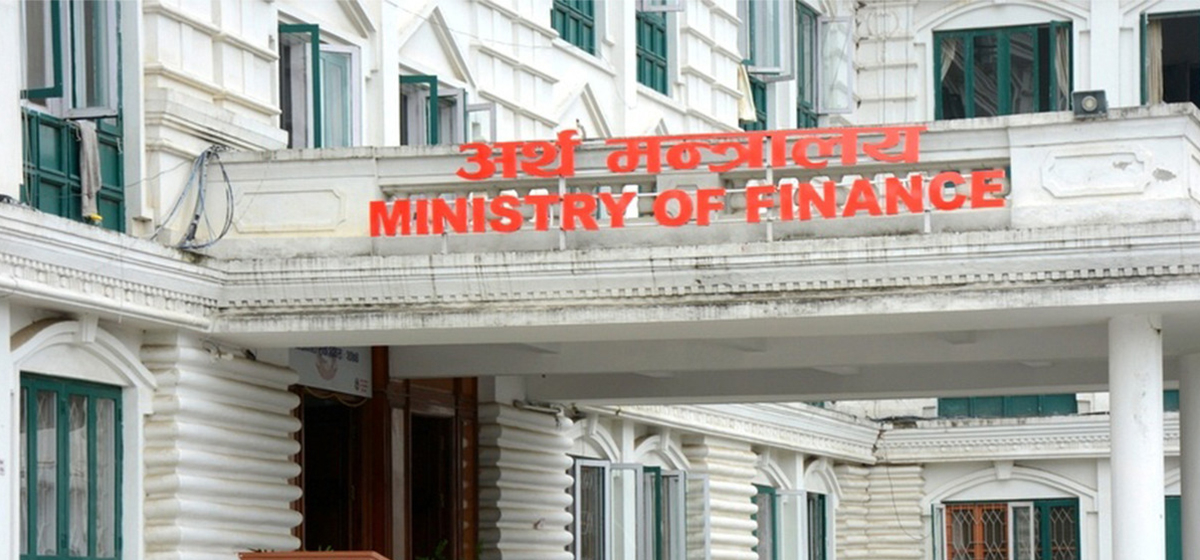
OR
Editorial
Prudent Path to Determining the Size of Nepal Army
Published On: July 20, 2023 07:00 AM NPT By: Republica | @RepublicaNepal

In the midst of a challenging economic environment, the size of Nepal's national army has become a subject of intense debate. As the nation grapples with a significant budget deficit, it is only natural for concerns to arise about the right size of our security force. However, this critical decision must not be taken lightly or unilaterally; instead, it should be the result of a collective dialogue involving all stakeholders, aimed at securing our vital national interests and preserving our achievements on the international stage. Since the outbreak of the Maoist insurgency in 1996, the Nepal Army has undergone significant changes. From a force of approximately 46,000 personnel, it has grown to a strength of over 96,000 in an effort to combat the insurgency. The formation of the Armed Police Force in 2001 further expanded the security apparatus. Subsequently, discussions about rightsizing the army arose when the Comprehensive Peace Agreement (CPA) was signed in 2006, envisioning a democratically restructured and inclusive national army.
The debate about rightsizing the national army stems from the absence of internal conflicts and perceived lack of external threats from neighboring countries. However, it is essential to adopt a broader perspective and consider the ever-changing geopolitical landscape. Recent global events, such as the Ukraine war, simmering Sino-Indian hostilities and mounting tension between the US and China have prompted countries worldwide to prioritize their defense and security. In this context, the crucial role of a deterrence force that the Nepal Army serves to safeguard our national sovereignty must not be ignored. Furthermore, we must not overlook the vital contributions of the Nepal Army to international peacekeeping missions. As the second-largest troop contributor to UN peacekeeping missions, our army has become a symbol of Nepal's soft power projection on the global stage. This participation enhances our international reputation and strengthens our diplomatic ties. Any decision regarding the army's size should take into account this valuable aspect of our national identity. Needless to say, the Nepal Army has consistently proven itself as a reliable and capable force during times of national crises and natural disasters. Their presence and timely response have saved countless lives and mitigated the impacts of calamities. Additionally, by recruiting individuals from grassroots levels, the national army also acts as a source of employment and economic opportunity for those from marginalized backgrounds, promoting a trickle-down effect on the national economy.
The government must adopt a holistic approach to address the pressing issue of the budget deficit. Restructuring bureaucracy, eliminating unnecessary expenses like large foreign delegations, and addressing duplications in public spending across all tiers of government are imperative steps. These austerity measures would not only improve financial stability but also help allocate resources to crucial sectors like healthcare, education, and infrastructure development. However, any decision regarding the size of the national army should not be driven solely by financial constraints. Our nation's security and sovereignty must remain paramount. A modest, well-trained and efficient army is essential to ensure internal stability and act as a deterrent in the face of evolving security challenges. The debate about resizing the Nepal Army should not be an ill-timed one. Instead, it should be an ongoing and thoughtful discussion involving political parties, security experts, and the public. Views of individual leaders may differ, but it is crucial to build a national consensus on this critical matter. Therefore, the government must take the initiative to convene a comprehensive and inclusive discussion involving all stakeholders. This national dialogue should consider long-term internal and external threats, the evolving geopolitical and geostrategic environment in the region, and our commitments to international peacekeeping efforts.
As Nepal transitions to federalism, our security concerns are further amplified. It is essential to strike a balance between providing security within our borders and contributing to global peacekeeping missions. A well-structured, adequately sized national army is the cornerstone of our nation's security strategy. Determining the size of the Nepal Army is not a decision that can be taken hastily or unilaterally. It requires the collective wisdom and consensus of all parties concerned. The role of Nepal Army in projecting our soft power globally, providing essential support during crises, and ensuring our national security as a deterrent force cannot be understated. As we strive for economic stability and prudent resource allocation, we must not compromise on our defense capabilities. Let us come together as a nation to deliberate on this issue and make a decision that best serves our national interests, preserves our achievements, and ensures a secure and prosperous future for Nepal.
You May Like This

Army plants 38,000 fruit saplings
KATHMANDU, June 30: As a part of the campaign led by Nepal Government under the concept of ‘One Citizen One... Read More...

Change in government size will not affect election: CEC Yadav
DHULIKHEL, Oct 16: Chief Election Commissioner (CEC) Ayodhee Prasad Yadav has said the recent expansion of the Cabinet would not... Read More...




Just In
- Nepal received FDI of Rs 270 billion in the past three decades
- A Modest Call for a ‘Nepali-First Strategy’
- Nepal Investment Summit 2024: Private Sector's Voice
- Vote counting in Ilam-2 and Bajhang-1(a) to begin today
- Nepal Investment Summit-2024 kicks off today
- Govt proceeds with sovereign credit rating process stalled for three years
- Investing in Nepal for a Noble Cause
- Sunkoshi-Marin Diversion Project’s tunnel construction nears completion, breakthrough scheduled for May 8







-1200x560-wm_20240427144118.jpg)






Leave A Comment